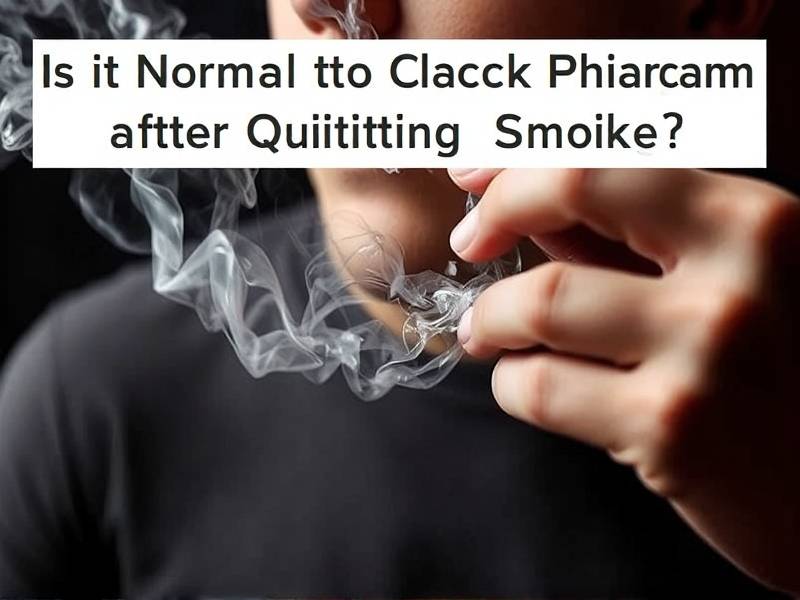Is It Normal to Cough Up Black Phlegm After Quitting Smoking?
Understanding the Phenomenon of Black Phlegm After Smoking Cessation

Introduction: Quitting smoking is a significant step towards a healthier lifestyle, but it can also bring about unexpected physical changes. One such change that often surprises smokers is the appearance of black phlegm. In this article, we will explore whether it is normal to cough up black phlegm after quitting smoking and provide insights into the underlying reasons.
What is Black Phlegm?

Black phlegm refers to sputum that appears dark and may have a gritty texture. It can be caused by various factors, including smoking, pollution, or respiratory infections. However, when smokers quit smoking, they often experience an increase in mucus production and changes in its color.
Is It Normal to Cough Up Black Phlegm After Quitting Smoking?
Yes, it is normal to cough up black phlegm after quitting smoking. Here's why:
-
Cleansing the Lungs: When you quit smoking, your body starts to cleanse itself from the accumulated tar and toxins present in the lungs. This cleansing process can lead to an increase in mucus production and changes in its color.
-
Increased Mucus Production: Quitting smoking stimulates the respiratory system to produce more mucus as a way of clearing out trapped particles and toxins from the lungs. This increased mucus production can result in black phlegm as it accumulates more debris.
-
Detoxification: The body undergoes detoxification when you quit smoking. As a result, various substances stored in your body for years start to break down and are eliminated through different channels, including coughing up black phlegm.
-
Reduced Oxygen Supply: Smoking causes a decrease in oxygen supply to the lungs. When you quit smoking, your body starts to repair damaged lung tissue and restore oxygen supply. This process can lead to inflammation and increased mucus production.
How Long Will It Last?
The duration of coughing up black phlegm after quitting smoking can vary from person to person. Some individuals may experience this phenomenon for a few days or weeks, while others may take several months for their lungs to fully cleanse themselves.
Tips for Managing Black Phlegm:
-
Stay Hydrated: Drinking plenty of water helps thin out mucus and makes it easier to expel from your body.
-
Practice Deep Breathing Exercises: Deep breathing exercises help improve lung function and promote better oxygen supply.
-
Avoid Exposure to Pollutants: Reducing exposure to pollutants such as smoke, dust, or chemical fumes can help minimize mucus production.
-
Consult Your Doctor: If you experience persistent or severe symptoms of black phlegm after quitting smoking, it's essential to consult your healthcare provider for proper evaluation and guidance.
Conclusion:
Coughing up black phlegm after quitting smoking is a common occurrence due to the body's natural cleansing process and increased mucus production as it eliminates accumulated toxins from the lungs. While this phenomenon may be unsettling at first, it's generally a sign that your body is healing itself from years of exposure to harmful substances like tobacco smoke. By staying hydrated, practicing deep breathing exercises, avoiding pollutants, and consulting with your doctor if needed, you can manage this temporary symptom effectively on your journey towards better health.
